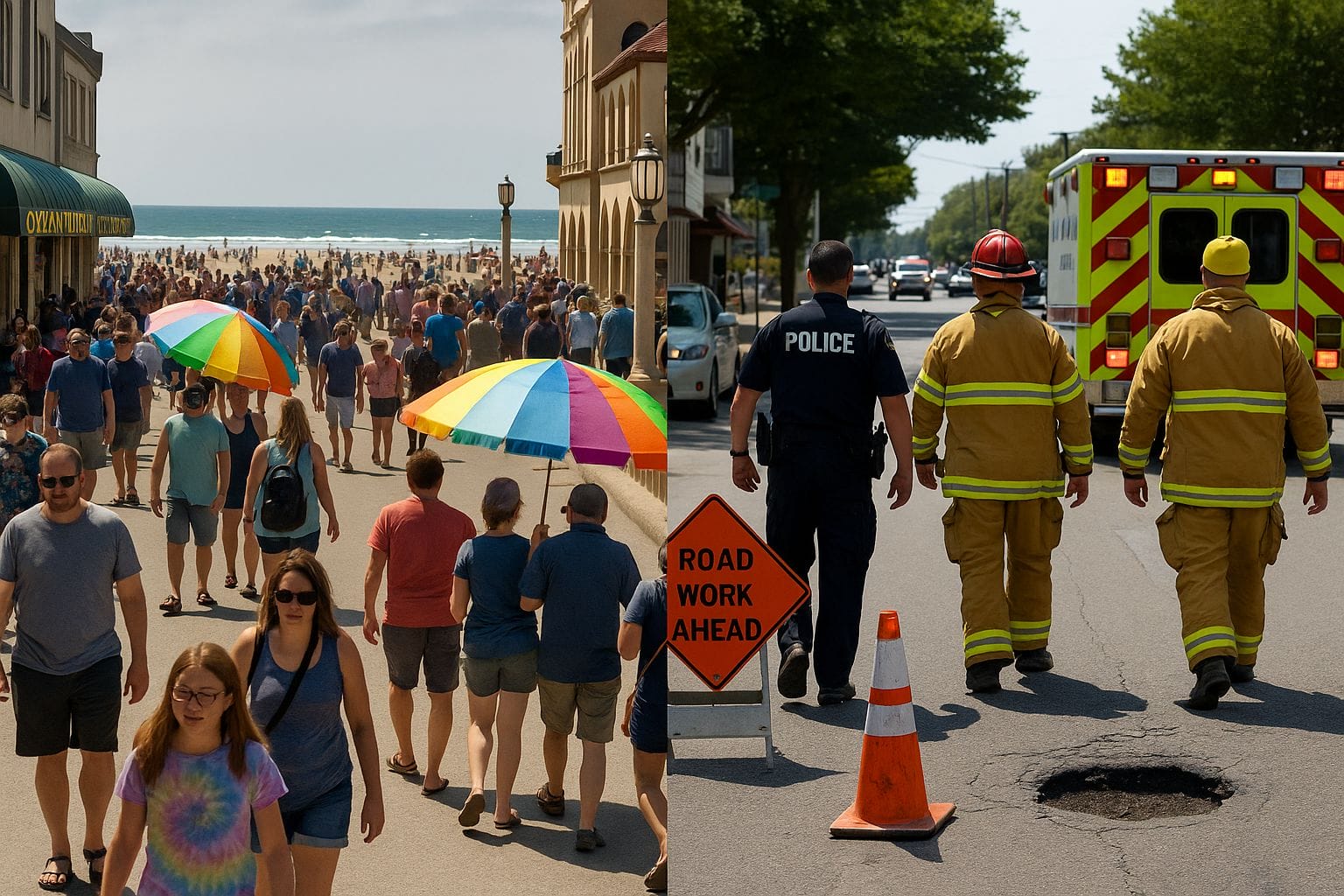Oregon Cities Push for Lodging Tax Reform to Offset Costs of Overtourism
As Oregon’s tourist towns brace for another surge of summer visitors, cities like Seaside, Bend, and Sutherlin are increasingly clashing with the state’s travel industry over how lodging tax revenues should be spent. At the heart of the debate is House Bill 3962—a legislative proposal aimed at giving local governments more flexibility in using tourism-generated taxes to fund critical public services strained by overtourism.
Currently, Oregon law mandates that 70% of lodging tax revenues be used solely for tourism promotion. This model, first established in 2003, was designed to grow the state’s travel economy by marketing Oregon’s natural and cultural attractions. The strategy succeeded. Tourism now represents nearly 10% of the state’s economy, generating approximately $241 million annually in state and local lodging tax revenue and supporting over 120,000 jobs.
But many cities argue the growth has come at a cost.
Seaside: Popular but Overwhelmed
Seaside, a charming beach town on Oregon’s north coast, welcomes over two million tourists each summer. While the influx boosts local businesses, it also wears down infrastructure, floods emergency services, and produces thousands of tons of waste. Mayor Steve Wright sees a solution in the $11 million the city has accumulated from lodging taxes. However, due to the 70-30 legal split, Seaside cannot allocate most of that money to vital services like police or road repair.
“We’re getting too much of that money to spend [on promotion],” Wright remarked. “At some point, continuing to pour it into marketing is just wasteful.”
HB 3962: Balancing Promotion and Public Need
House Bill 3962 proposes to revise the current spending formula to a 40-60 split—allowing 60% of lodging tax funds to go toward “tourism-impacted services” such as fire departments, law enforcement, emergency medical care, and public infrastructure. The bill has evolved from an earlier draft, HB 3556, which had strong backing from city and county leaders across Oregon.
The proposal has passed committee and is slated for a House vote, although its fate in the Senate before the legislative session ends on June 29 remains uncertain.
Industry Pushback: A Threat to Promotion?
The Oregon Restaurant and Lodging Association (ORLA) and the state’s seven regional Destination Management Organizations (DMOs), which receive funding from Travel Oregon, are strongly opposing the bill. ORLA argues that the original purpose of lodging taxes was to promote economic development through tourism and that changing the law diverts funds from that mission.
Greg Astley, ORLA’s director of government affairs, told lawmakers: “Local governments come to Salem every year trying to take these dollars away from their intended purpose.” He warned that reducing promotional funding would hurt businesses during off-peak seasons when tourist numbers drop.
Cities Demand Flexibility
Across Oregon, cities big and small are voicing support for HB 3962. In Lincoln County, for instance, local officials have documented the strain tourism places on law enforcement. Sheriff Adam Shanks revealed that in 2024, 19% of arrests and 39% of traffic citations in the county were linked to non-residents.
Likewise, in Sutherlin, City Manager Jerry Gillham described how popular events like the Blackberry Festival strain local resources, from damaging public parks to causing costly police overtime. Despite generating lodging tax revenue, the city was told by Travel Southern Oregon that it couldn’t legally use those funds for repairs—unless HB 3962 passes.
A National Conversation on Overtourism
The tensions in Oregon mirror a growing national debate on the sustainability of tourism growth. According to Todd Montgomery, director of the Sustainable Tourism Lab at Oregon State University-Cascades, more than 500 bills related to tourism tax spending have been introduced in U.S. state legislatures this year alone.
“Constituents are rising up and demanding change,” Montgomery said. “The status quo isn’t working for many people.”
He emphasized that HB 3962 is a response to widespread concerns that while tourism brings economic benefits, it also imposes real costs on communities.
Political Momentum and Future Reforms
HB 3962 is being championed by bipartisan lawmakers, including Rep. Cyrus Javadi (R-Tillamook), Rep. Jules Walters (D-West Linn), and Sen. Suzanne Weber (R-Tillamook). Javadi believes the hospitality industry has wielded disproportionate control over how tourism funds are spent, citing the make-up of Travel Oregon’s nine-member board—five of whom must come from the lodging industry.
“There’s a lot of interest in coming back in the short session,” Javadi noted, suggesting that further reforms may include adjusting the board’s structure and subjecting Travel Oregon’s budget to legislative oversight.
Looking Ahead
As Oregon faces the dual challenges of maintaining its tourism-driven economy and ensuring livable conditions for residents, HB 3962 represents a pivotal shift in policy. Proponents argue that rebalancing how lodging tax funds are spent will create more sustainable tourism infrastructure—protecting both visitor experiences and community well-being.
With the summer season in full swing, cities like Seaside and Sutherlin hope lawmakers recognize that promoting tourism must go hand-in-hand with mitigating its impact.
For more travel news like this, keep reading Global Travel Wire
















